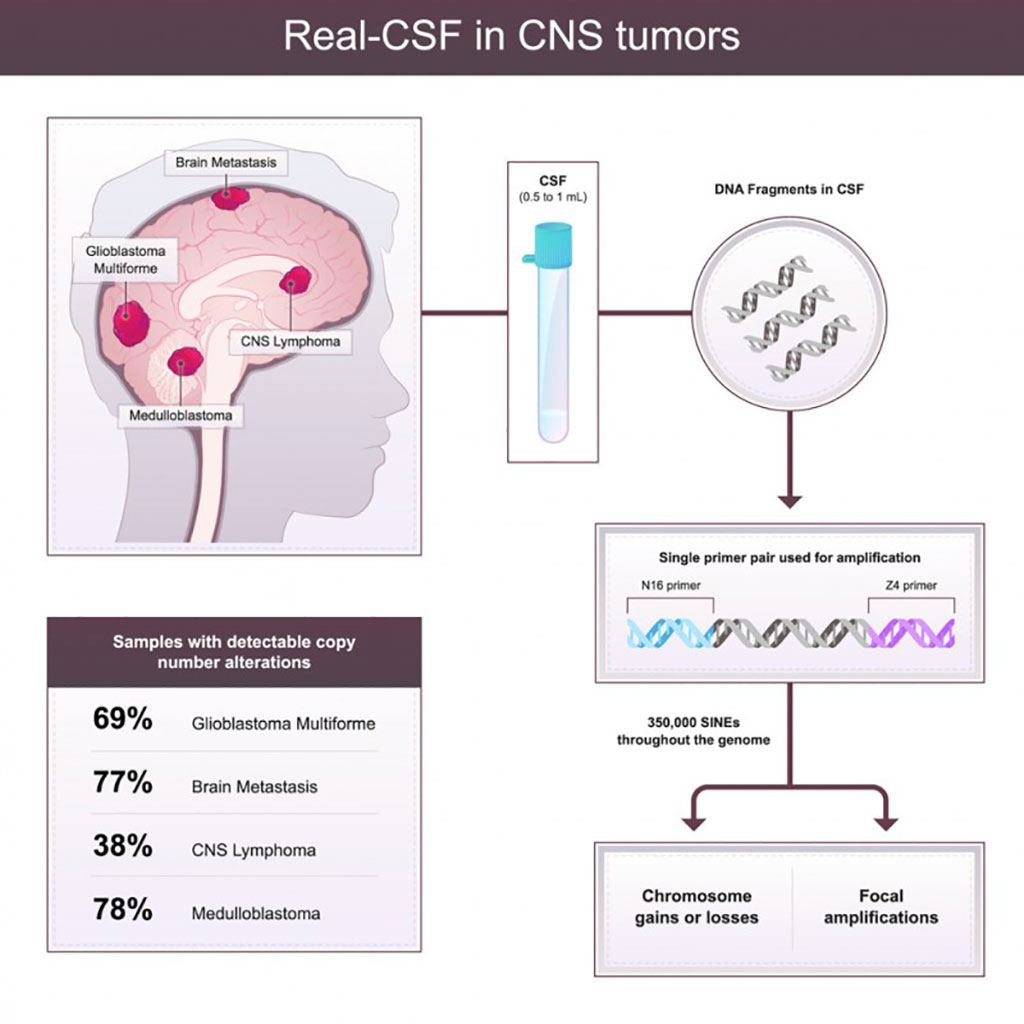Molecular Test Identifies Brain Tumors from Cerebrospinal Fluid
Posted on 07 Sep 2023
Doctors generally use MRI scans and biopsies to check for brain tumors. But sometimes, it's hard to tell if a brain lesion is cancerous or not using these usual methods. Now, researchers have developed a molecular test to identify the presence of brain tumors by measuring unusual genetic material that is released by tumors and circulates in cerebrospinal fluid (CSF).
Researchers at Johns Hopkins Medicine (Baltimore, MD, USA) have developed Real-CSF (repetitive element aneuploidy sequencing in CSF), a novel test that assesses aneuploidy (chromosome copy number alterations found in cancers) in over 350,000 regions of the genome simultaneously. Using a companion bioinformatics algorithm and machine-learning process, the test can identify the presence of cancers and their molecular characteristics in just two milliliters of CSF.

When the researchers tested Real-CSF in the lab using 280 CSF samples from people, some with brain cancer and some without, it accurately identified 67% of the cancerous brain lesions and 96% of the noncancerous ones. This outperformed the usual cytology testing approach, which only found 23% of cancers in a group of 121 patients. If more studies and tests show that Real-CSF works well, it could help doctors decide if a brain lesion is cancerous or not. It could also help them see how brain tumors are responding to treatment. The researchers now aim to make the test even better by combining it with gene mutations linked to cancer or changes in DNA that are only found in cancer.
“The test is very simple to use, works even on a limited amount of CSF and is inexpensive relative to many of the other liquid biopsy approaches on the market,” said senior study author Chetan Bettegowda, M.D., Ph.D. “With those characteristics, we were quite pleased that we had such a robust performance.”
Related Links:
Johns Hopkins Medicine













